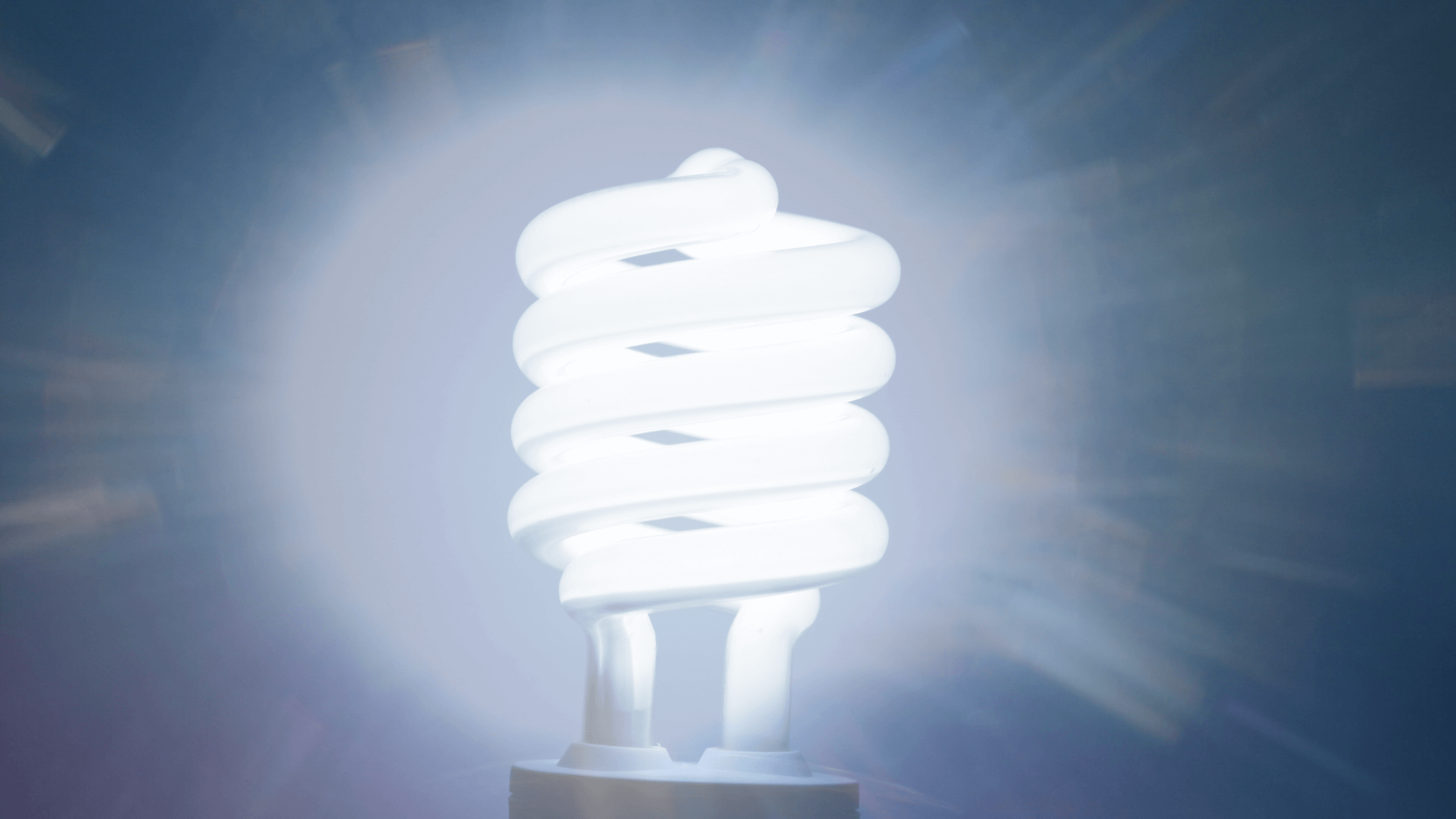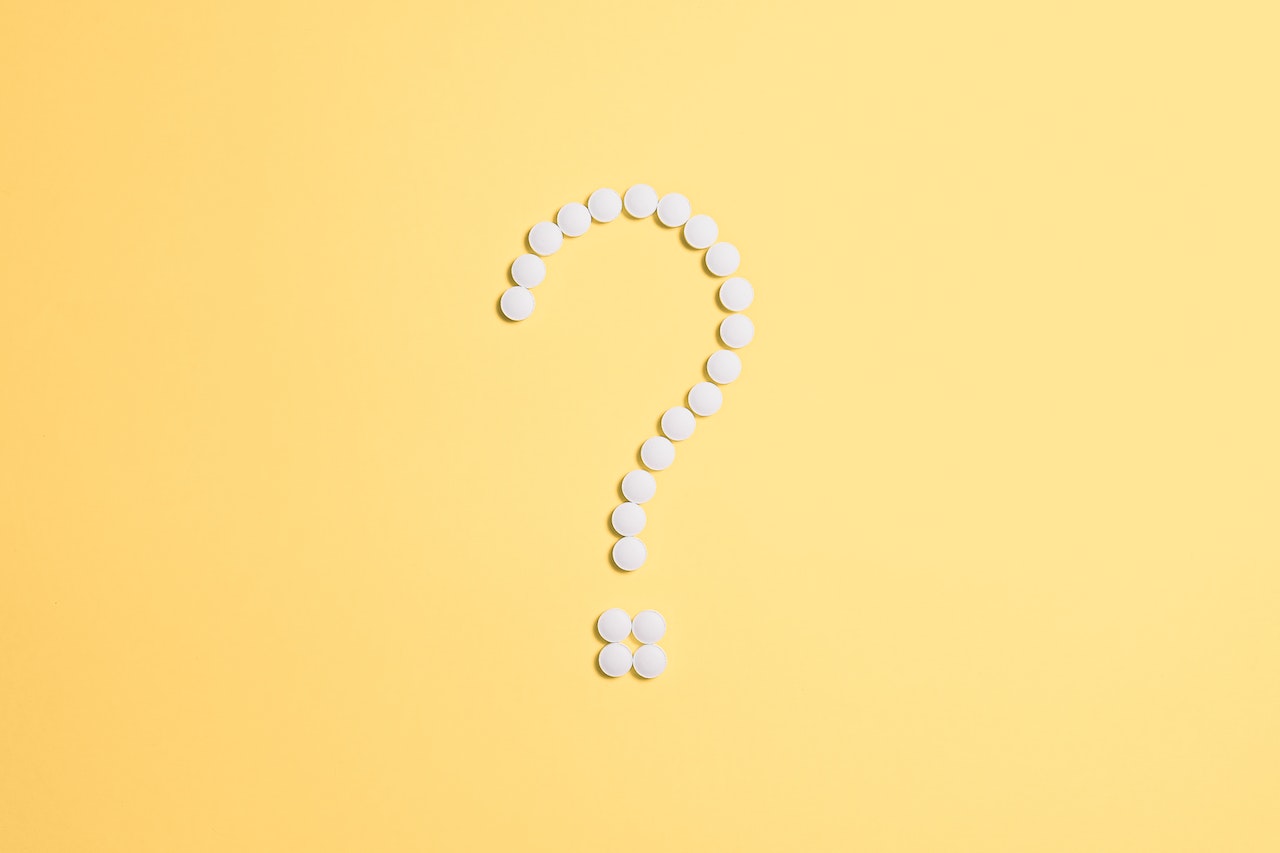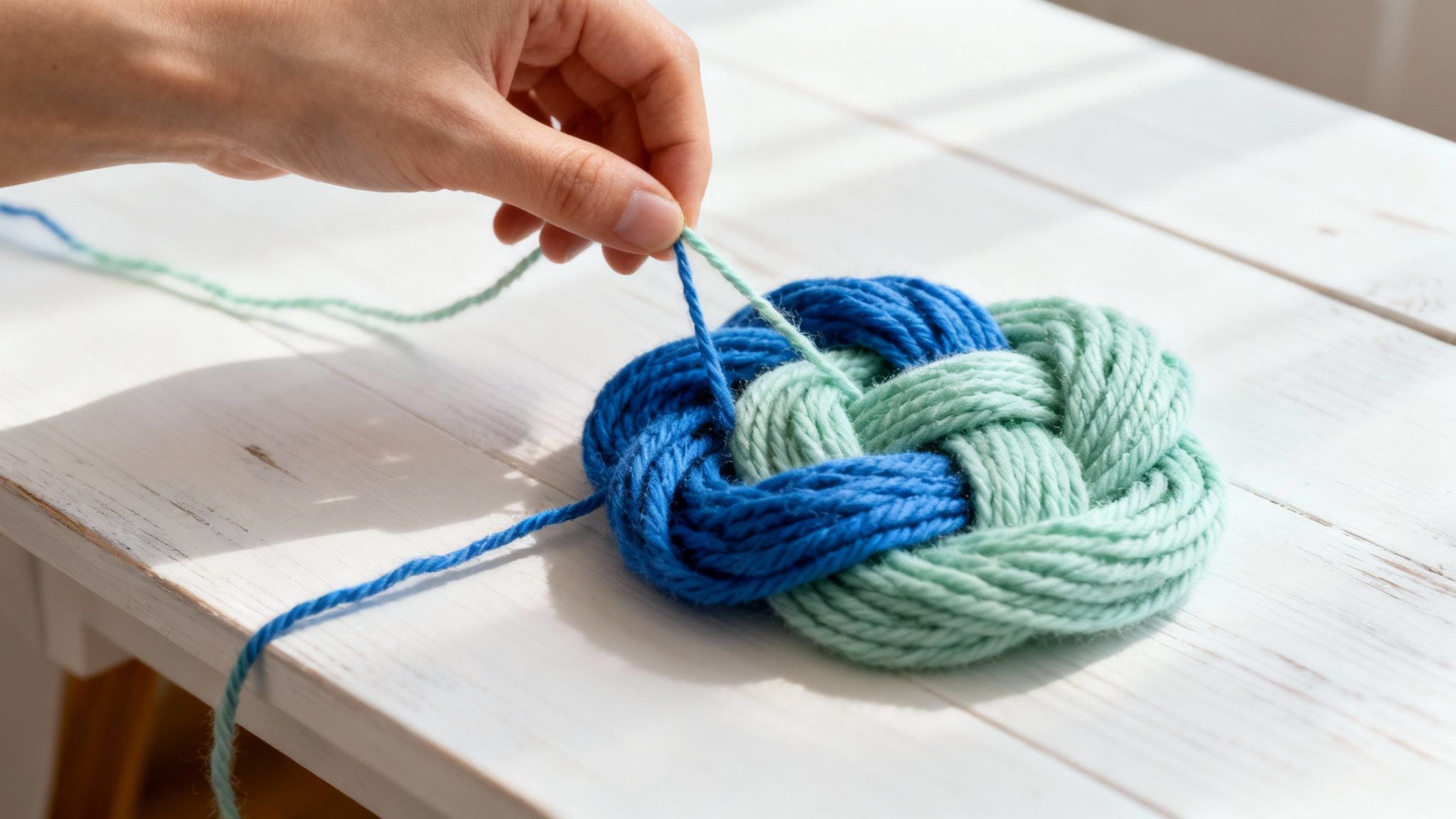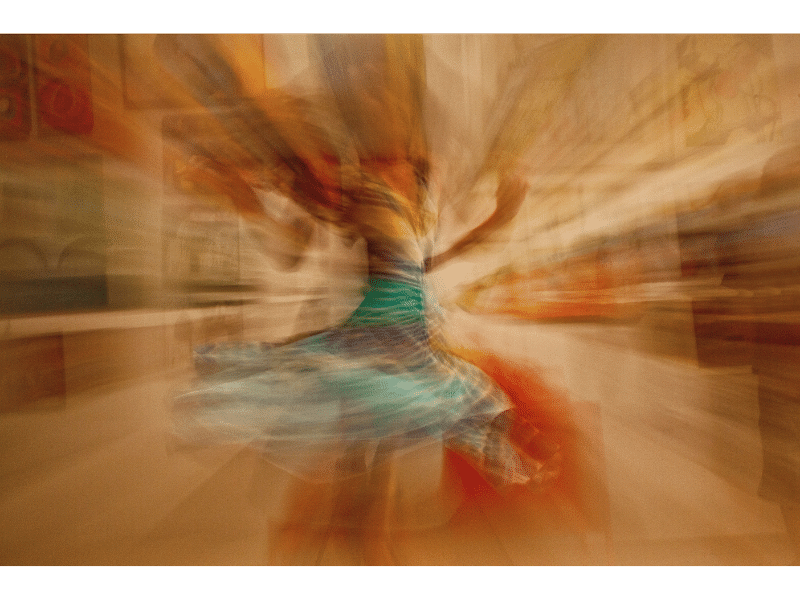ADHDers are no strangers to needing things in a specific way. Hugs, particular food textures, or even certain spoon shapes can send me into the stress stratosphere. Luckily, I can control these stimuli and keep myself grounded.
Overly bright fluorescent lighting is a common sensitivity that’s generally out of ADHDers’ control, as it’s unrealistic to ask grocery stores to swap their lights for something that doesn’t make you feel like you’re lying on an operating table.
But what about these lights make them so unbearable to ADHDers? Let’s unpack what that’s about and what you can do to mitigate the effects.
Too long; didn’t read
- Many ADHDers are sensitive to sensory input, including light.
- You might be sensitive because of ADHD, another comorbid condition, or because it’s part of your personality.
- ADHDers might be especially sensitive to light because the eyes are linked to dopamine and melatonin production.
- You can use strategies to block or alter light exposure and seek professional help to learn coping mechanisms.
ADHD and sensory processing
Sensory processing is a common phrase in the neurodivergent community. It’s how your brain handles the constant information coming at you through each of your senses.
Sensory processing sensitivity (SPS)
Sensory processing sensitivity (SPS) has been described as a personality trait that involves greater sensitivity to both external and internal stimuli and a tendency to process information more deeply.
It is “associated with increased sensitivity to sensory processing of emotions, pain, environmental stimuli, and esthetic experiences.” SPS is measured by the Highly Sensitive Person Scale (HSPS) and higher levels of SPS have been found to correlate with stronger ADHD symptoms in adults.1
Sensory processing disorder (SPD)
Sensory processing disorder (SPD) describes the brain’s inability to organize sensory input appropriately. It is believed to be related to impaired connectivity and integration patterns in the brain.2
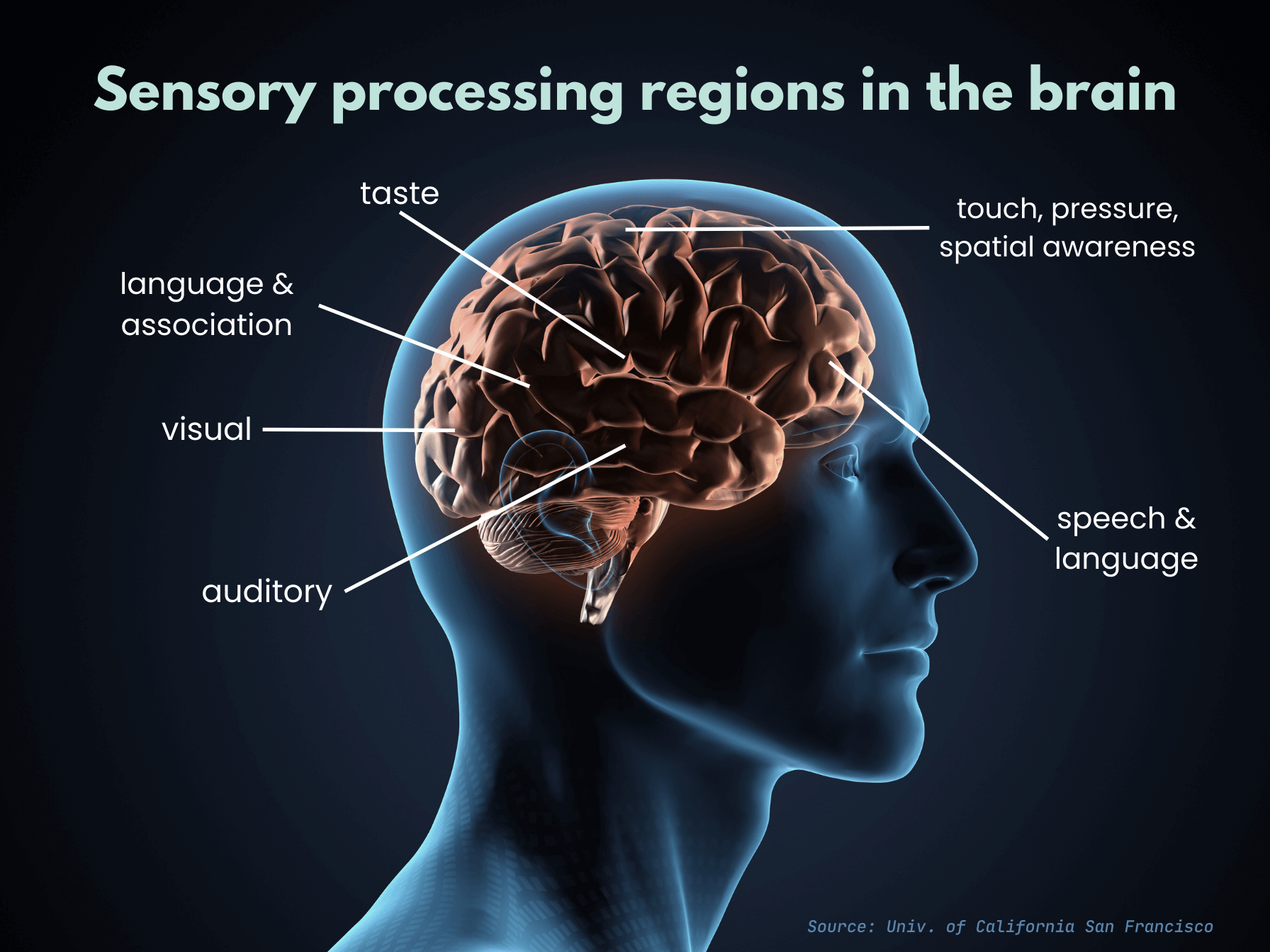
SPD can have similar symptoms to SPS and it’s possible to have both playing off each other.
If any of this sounds familiar, you might experience some or all senses at full blast—you sense the mood in a room change, feelings can wreck you, a strong smell or loud noise can send you running, and yes, you might react strongly to lighting.
Fluorescent lighting and your sleep
Sure, certain lights can make your eyes uncomfortable, but the issue can go a lot deeper.
How our eyes work affects the production of two crucial chemicals in the brain and eyes - dopamine and melatonin. These chemicals regulate various functions, such as attention and sleep. When dopamine and melatonin aren't produced in the right amounts or at the correct times, it can lead to sleep problems and worsen ADHD symptoms.
Additionally, some types of lighting, such as fluorescent lights, can cause overstimulation and disrupt the delicate circadian rhythms of individuals with ADHD, further exacerbating symptoms.3
🔬ADHD research: 69% of people with ADHD symptoms say they are oversensitive to light, compared to only 28% of people without ADHD symptoms.3
ADHDers and light sensitivity
There is so much information coming at us all the time, so it’s not surprising that ADHDers can experience sensory overload in response to specific lights or smells.
But there are a few reasons ADHDers might be particularly sensitive when it comes to light.
Blue light
That glow from your phone or computer that everyone tells you to avoid? It’s blue light, a wavelength that suppresses melatonin production and signals “It’s daytime - rise and shine!” to your body, making it harder to fall asleep.4
Comorbid conditions
I wish someone had provided a list of all the conditions that often co-occur with ADHD, but like most of you, I’ve learned through trial and error. Sensory processing disorder is one of my comorbidities, which contributes to my light sensitivity.
Many autistics experience SPD or heightened sensory sensitivity, and it’s common for people to have both neurodivergencies (often called AuDHD).
Medication side effects
Though your ADHD medication probably won’t cause light sensitivity—it’s not a listed side effect—it can cause headaches, which might make you more sensitive to light.
Improved focus
ADHD medication can also help you focus better... which is great! That is, unless you’re focusing on the fluorescent lights and how irritating they are.
Potential for sleep problems
Sleep issues, especially if you take your meds later in the day, can lead to a delayed sleep phase or inability to go to sleep until late—even if you're really tired and really want to go to sleep.
Sleep deprivation only worsens sensitivity because the tired brain has to work harder to process incoming stimuli.
How to cope with ADHD-related light sensitivity
So, since we can’t shut off all the fluorescent lights, what’s an ADHDer to do? Here are a few tips to get started.
- Change out your light bulbs (some smart bulbs even allow you to adjust the light color from your phone so you can see what colors you like).
- Take advantage of night mode or dark mode on your computer and phone to limit your exposure to blue light in the evening.
- If you must be around fluorescent lights, try wearing lightly tinted glasses, keeping your visit short, and taking breaks as needed.
- Consider seeking help. You might try occupational therapy or a neuro-ophthalmologist (both have helped me cope better).
Final thoughts
While some evidence suggests that light sensitivity may be more common in ADHD brains, more research is still needed. That said, if you're someone with ADHD (or suspect that you have ADHD) and experience light sensitivity, there are steps you can take to manage your symptoms.
🚀 You try it! The Inflow app contains an ad-free library of learning modules, quizzes, journal prompts, and live events for ADHDers who want to learn more about their brains. The modules are written by experts (some of whom also have ADHD!) and cover dozens of ADHD-related topics, including sensory processing. Take our quiz below to get started!
Sources
1 Psychiatry Research | The relationship between sensory processing sensitivity and attention deficit hyperactivity disorder traits: A spectrum approach
2 Neuroimage Clinical | Diffusion tensor tractography in children with sensory processing disorder: Potentials for devising machine learning classifiers
3 Frontiers in Neurology | High Prevalence of Self-Reported Photophobia in Adult ADHD
4 Journal of Psychiatric Research | Blocking nocturnal blue light for insomnia: A randomized controlled trial


